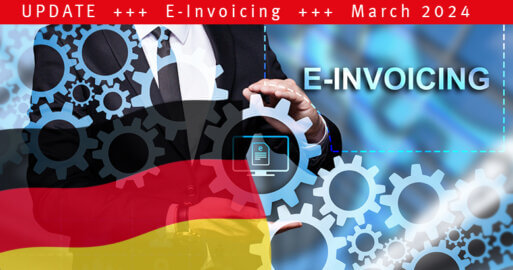Why Automating Your Bookkeeping is a Good Place to Start Your Company’s Digitalisation Journey

Hyper automation, cloud technology and machine learning are just a few of the terms that are currently on everyone’s lips. But when it comes to actually automating concrete processes in a company, things quickly get quieter. You notice that there is still a lot of uncertainty around automation, and measures are viewed with scepticism due to a lack of experience and understanding. However, this doesn’t have to be the case. A good way to start automating company processes is as simple as it sounds: just start. To help you dip your toes into the automation waters, we would like to show you why accounting is an ideal entry point into automation, and what exciting things you can do here.
Structured data is the key to automated processes
First things first: Automation needs data. Good data. We could certainly discuss the definition of ‛good’. However, it’s fair to say that the data needs to be standardised, structured and meaningful. Unfortunately, there are not many ERP systems where you can press a big red button and call up a perfect dataset out of thin air. Therefore, it’s even more important to consider which company transactions would take the least effort to automate. One answer is found in bookkeeping. The basic components of an accounts entry, such as the sales amount and credit/debit details, are easy to identify. They are always present, and will still be there in 10 years. Furthermore, the information is collated into fixed time periods such as a month or a year. And this gives us a stable, continuous flow of data.
CFOs, bookkeepers and managerial accountants are data geniuses in a class of their own
Once you have data to process, the skilled work really begins. It is pretty obvious that the finance department has a better feel for numbers than other departments in the company. But this is also an important gift that can be transferred to interpreting data in general. After all, automation is all about making large amounts of data usable, analysing them and packaging them into efficient processes and workflows. At the beginning, this involves a lot of trial and error and ‘learning by doing’. When testing RPA-supported financial processes, for example, it is important to work cleanly and be able to identify errors quickly. Who could do this better than someone who can already spot a rogue number among 1,000 entries in no time at all?
Repetitive bookkeeping processes offer quick efficiency gains
Staff in the finance department are not just quiet experts on complex topics. They also need to perform a high number of repetitive tasks. If you are planning on scaling up a business model, a lack of digitalised bookkeeping could be your biggest obstacle. However, if you are able to automate, say, large parts of your accounts receivable and accounts payable, when growing your business you may need to switch to your cloud provider’s next subscription level. However, you won’t be faced by an administrative jungle.
It’s easy to transfer new processes to other business areas
The goal of a holistic automation strategy should not be to simply convert paper-based processes into digital form. Instead, it’s an opportunity to reconsider processes in light of the opportunities that modern technology can now offer. A good example is the ability to create and receive documents in a structured data format such as XRechnung. This can grow into a seamless payment process, or automatic communication with customers and suppliers. And these solutions can be easily transferred to other areas in your organisation and suddenly you’ve digitalised another process!
Get started – and reach out to others
My appeal to you: Don’t hesitate over automation any longer. Just get started! Experts from a wide variety of fields are very open to sharing ideas and mutual support, which is ideal for making a success out of your automisation projects.
Thank you for your message
We appreciate your interest in SEEBURGER
Get in contact with us:
Please enter details about your project in the message section so we can direct your inquiry to the right consultant.
Written by: Ricarda Hieber
Ricarda Hieber is Lead of Process Optimization at TaxIt Consulting GmbH, a young, dynamic consultancy which supports chartered accountants and their clients in digital transformation and innovation. Ricarda plays an important role at the juncture between tax consultancy, business and technology, and aims to find user-friendly, comprehensive solutions for her clients.





